Why does my PC take so long to open programs? If EXE program files take too long to open, this post will help you fix the issue. Most PC enthusiasts are researching ways to increase the speed of the computer by trying out various tweaks. Today, we will show you how you can decrease the Desktop loading time for EXE programs on Windows 11/10.

Programs taking a long time to open in Windows 11/10
If EXE Program files are taking a long time to open in Windows 11/10, create a system restore point or take a backup of your registry before proceeding further as follows:
- Check the system requirements
- Update all your installed programs
- Reinstall the problematic program
- Is your security the reason?
- Run System File Checker
- Run Disk Cleanup Tool
- Upgrade Hard Drive to SSD
- Manage Startup items
- Check in Clean Boot State
- Tweak the Registry.
Make Windows desktop EXE programs load faster
1] Check the system requirements
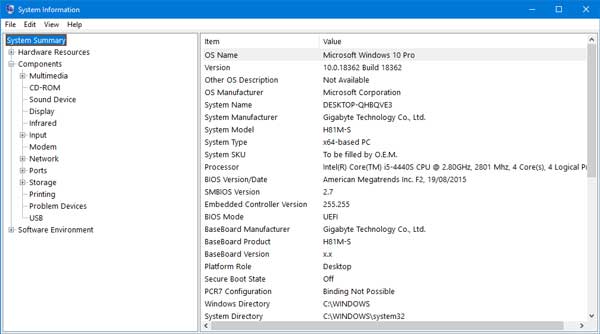
First and foremost check if your system meets the hardware requirements of the installed programs. You will get them on the home pages of the software.
2] Update all your installed programs
You should update all your installed programs and see if that helps.
3] Reinstall the problematic program
Download the latest setup files for the problematic programs and run them. Select the Install, Reinstall or Repair option when offered, to reinstall the software.
4] Is your security the reason?
It may happen that your third-party antivirus software scans the program every time you click to open it, resulting in a delay. Temporarily disable it and see if that is the reason.
You may also temporarily disable SmartScreen and see if it is the cause.
5] Run System File Checker
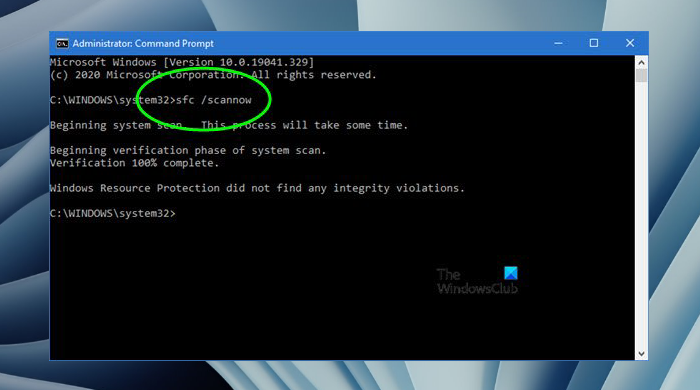
Run the System File Checker tool to replace potentially corrupted system files.
6] Run Disk Cleanup Tool
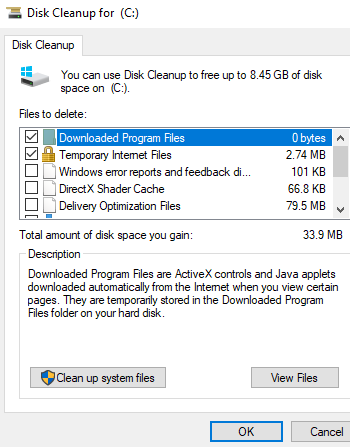
Run the Disk Cleanup Tool to clear up disk space.
7] Upgrade Hard Drive to SSD
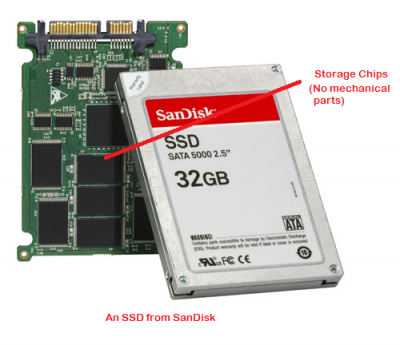
If possible, upgrade your HDD to an SDD, as it gives good performance benefits.
Read: Laptop slow even after Formatting or Factory Reset
8] Manage Startup items
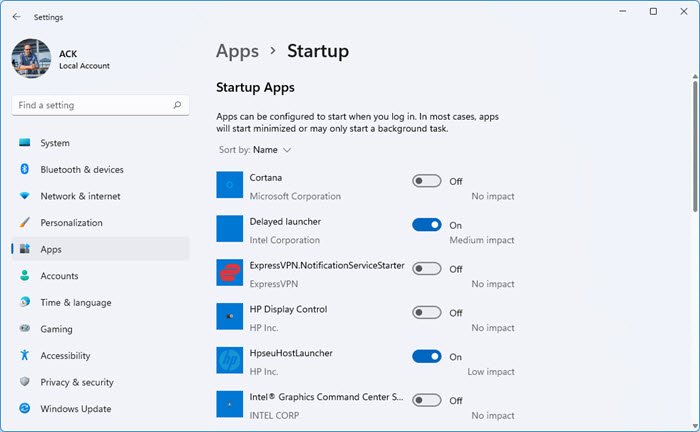
Maybe you have too many programs starting up and running in the background. Disable those startup items that you do not need.
9] Check in Clean Boot State
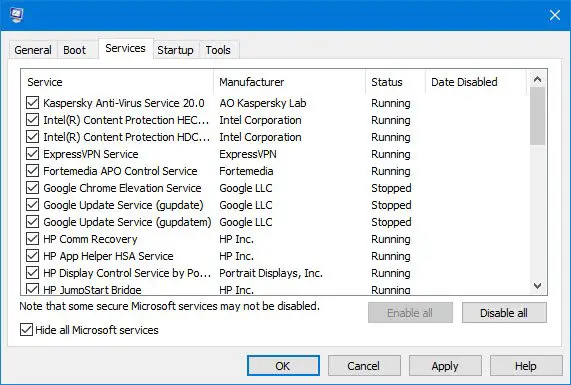
Perform Clean Boot and see if the programs start normally. If they do, then maybe some third-party process is interfering with it. Manually troubleshoot to identify the offender and then disable it.
10] Tweak the Registry
Press Win + R and type in regedit to open the Registry Editor. Go up to the File menu and click on Export.

Make sure the Export range is set to ALL. Then type in the file name and hit Save.
Now that we backed up the registry let us start the process
Open the registry and go to-
HKEY_CURRENT_USER\Software\Microsoft\Windows\CurrentVersion\Explorer
Look for a key Serialize, if you don’t find it then create one
Right-click on Explorer key and point to new and select key and type in Serialize
Now right-click on an empty area on the right side of the window and then point to “New” and “DWORD (32-bit)” and type in StartupDelayInMSec.
Next, double click on StartupDelayInMSec and type the value data as 0 and click OK

Now reboot your computer to take effect.
Alternatively, you could open a Notepad and paste the following text:
Windows Registry Editor Version 5.00
[HKEY_CURRENT_USER\Software\Microsoft\Windows\CurrentVersion\Explorer\Serialize]
"StartupDelayInMSec"=dword:00000000
Go to File and click on Save A.
Type in the file name in quotes “Decrease-boot-time.reg” and save it to your desktop.
Now just double-click on this file and click Yes in the prompt.
Reboot the system.
If you want to revert back to default settings just remove StartupDelayInMSec under Serialize.
After Windows loads up, it doesn’t start loading your startup apps immediately as it allocates more resources to load system services and files. If you have a fast computer, you can disable this feature and have even your apps start loading instantly the moment Windows boots up. What this does it you can set a value to delay your windows to start up your desktop applications automatically. So by setting the value to zero will automatically decrease the boot time of your Windows PC.
Some say it’s just a placebo, while others say it works – so let us know if it worked for you.
If nothing helps, you may have to create and use a new user profile or use the Reset PC option.
Related: Microsoft Store apps too long to load.
Why are my Windows programs slow to open?
Slow file opening on computers can be attributed to several factors: excessive background processes consuming memory, Quick Access glitches, search and indexing issues, incorrect system settings, and potentially corrupted files. Ensuring system efficiency through regular maintenance and optimizing settings can help speed up file access.
Why is Run as administrator taking too long?
Run as administrator may take too long to work if your user account lacks admin privileges, system files are damaged, or registry inconsistencies exist. Additionally, malware can interfere with administrative functions. Ensure your account has the correct permissions and run a system scan to address potential issues. You should also run the DISM Tool to repair the system image.

The text offered for Cut-and-Paste has the word processing kind of double quotes instead of the text kind that’s needed. (As well, there’s one extra!)
Cheers, PW.
Hi, your theme is very beautiful! Could you give me name of this theme? Thanks!!!
It’s Metro Skin Pack.
did anyone try it did it worked ?
is it work for windows 7 ?